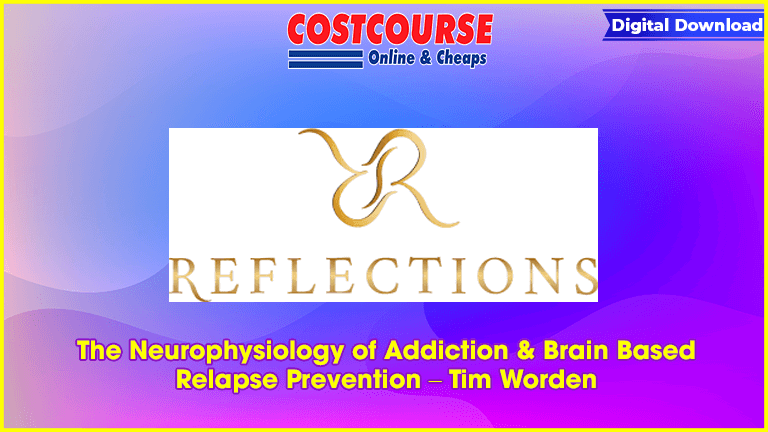Guide your treatment strategies through an understanding of the neurological changes caused by addiction
Structure a comprehensive treatment approach by understanding the five brain-based tasks of recovery
The Neurophysiology of Addiction & Brain Based Relapse Prevention – Tim Worden
Effectively assess relapse potential
Take home a relapse prevention plan, based on neuroscience which will integrate seamlessly into your sessions regardless of your psychotherapeutic approach
Working with clients whose progress is continually hindered by ongoing addiction is frustrating. No matter the progress, the issues of relapse appear and despite your best techniques, the client continues to flounder in therapy.
Join addictions expert Dr. Tim Worden, to put these frustrations behind you – and see improved treatment outcomes. Tim will give you easy-to-understand language to use in explaining the neurophysiology of addiction to the client. Armed with a better understanding, your clients will become more open to an approach that guides the individual through a blending of psychotherapy with an innovative relapse prevention plan – one that you’ll know exactly how to formulate after attending this seminar.
Regardless of your psychotherapeutic approach, this approach can be assimilated into your sessions easily. Tools and worksheets designed for relapse planning and the best strategies to apply case-by-case for co-occurring disorders such as trauma, anxiety and depression will be yours by the end of day. Any mental health professional, not just those trained in addiction counseling, will take home new skills and confidence to succeed.
Explain to clients the fundamental brain changes that occur with addiction.
Develop a treatment approach that addresses the five fundamental tasks of recovery.
Practice a comprehensive systematic relapse prevention plan.
Implement the four essential strategies in the relapse prevention plan.
Utilize cognitive and experiential techniques to increase the client’s motivation to prevent relapse.
Identify clients who are likely to relapse from those that are not likely to relapse.
The Neurophysiology of Addiction
The continuum of abuse to dependence
Normal neuro-transmission
The neurophysiology of dependence
Addiction’s influence on co-occurring disorders such as depression and anxiety
The Neurophysiology of Motivation and Desire
Addiction’s hijacking of the reward and motivational system
The relationship between emotional dysregulation and relapse
The relationship between the frontal lobes, motivation and relapse
The Five Tasks of Recovery
Core emotional issues such as depression and anxiety that are driving the addiction
Strategies for day-to-day emotional regulation
Relapse prevention
Changing the Motivational System: Life satisfaction and dopamine
Structuring ongoing recovery support
Relapse Prevention From a Brain Perspective
Dopamine–driven triggers for relapse
Cognitive, behavioral, and emotional relapse prevention strategies
Motivational coping: the essence of a brain-based relapse prevention plan
Practice the feeling of not wanting to relapse
The Elements to Long-Term Relapse Prevention
Effectively assess relapse potential
Prepare for the dopamine spikes
Train the family/support system
Identity as a non-user without loss
The Life Plan: long-term life satisfaction free of addiction








